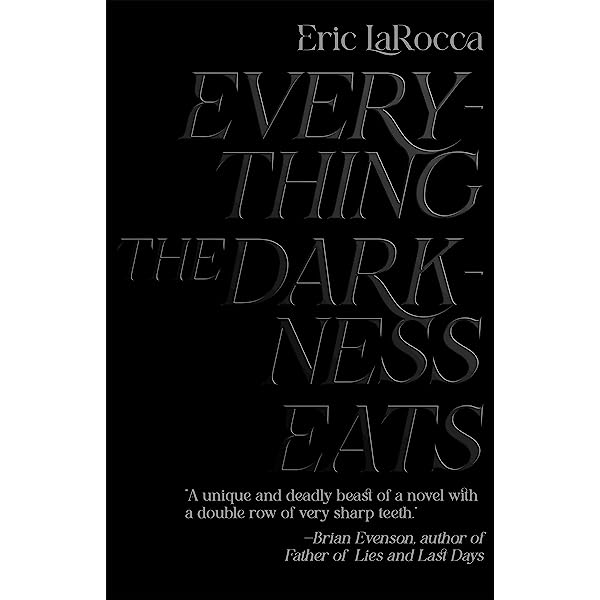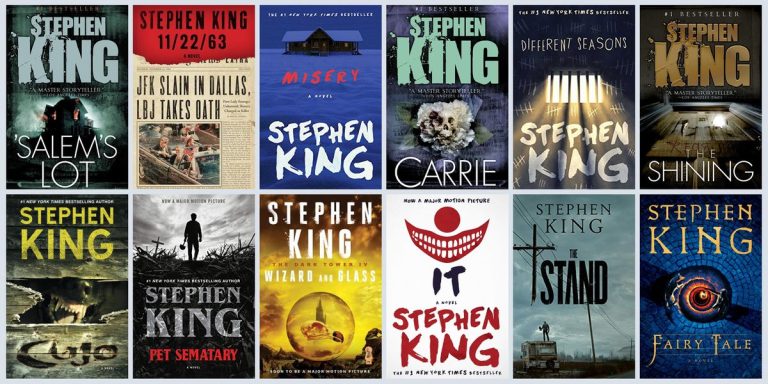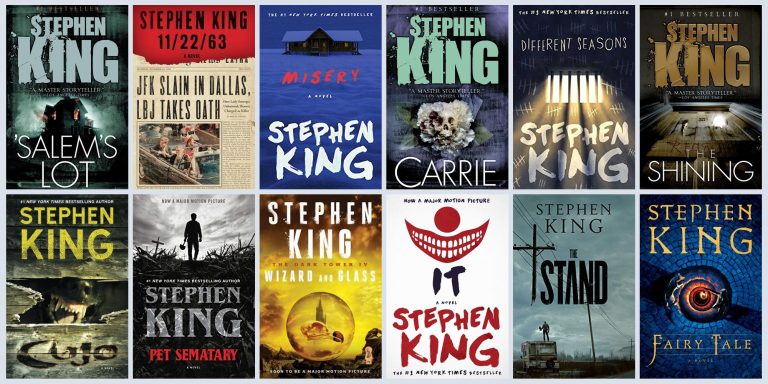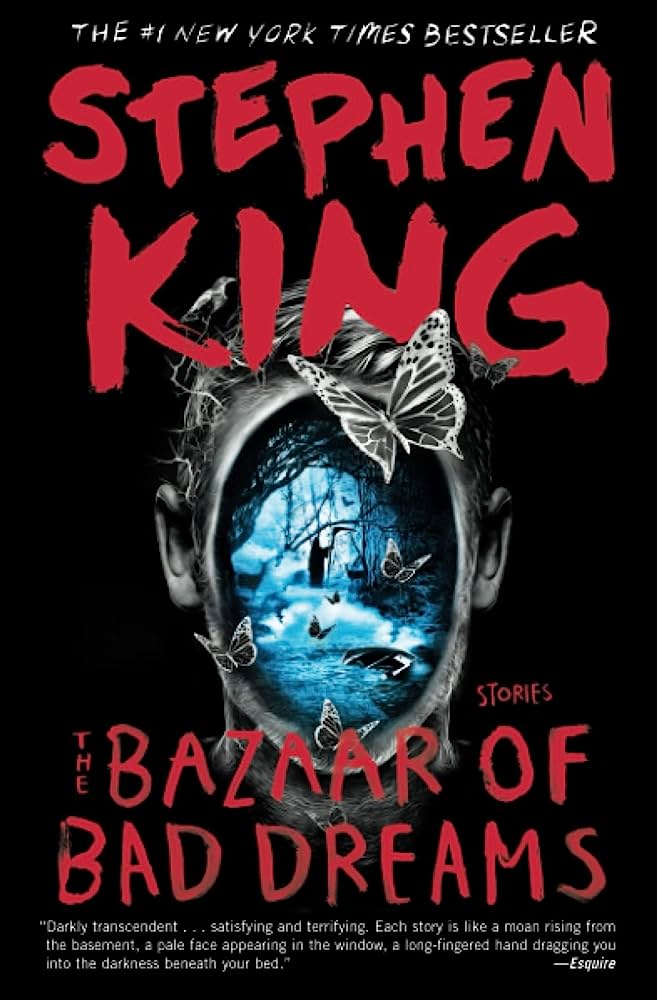Into The Dark Abyss: Stephen King’s Exploration Of Human Nature In His Books
Welcome, fellow readers, to the dark and captivating world of Stephen King! In this article, we will delve into the deep abyss of Stephen King’s exploration of human nature in his books. Brace yourselves for a thrilling journey through the twisted corridors of King’s imagination, as we uncover the hidden depths of his characters and the profound insights they reveal about the human condition.
Stephen King, a master of horror and suspense, has mesmerized audiences for decades with his ability to create complex and relatable characters who navigate the darkest corners of their own souls. From the chilling isolation of the Overlook Hotel in “The Shining” to the malevolent presence of Pennywise the Clown in “It,” King’s novels are a testament to his unparalleled understanding of human nature.
Prepare to be captivated as we explore the psychological depths of his characters, unearthing their fears, desires, and vulnerabilities. Join us as we analyze the themes of good versus evil, the human capacity for darkness, and the resilience of the human spirit in the face of unspeakable horrors. So, grab a flashlight and brace yourself for a journey into the dark abyss that is Stephen King’s world.

Into the Dark Abyss: Stephen King’s Exploration of Human Nature in His Books
Stephen King is a master of horror and suspense, but his novels delve deeper than mere scares. With a keen eye for human nature, King explores the depths of the human psyche and the darkness that resides within us all. In his books, he takes readers on a journey into the dark abyss of the human soul, uncovering our deepest fears, desires, and vulnerabilities. Through his vivid storytelling and relatable characters, King shines a light on the complex and sometimes terrifying aspects of being human.
The Power of Fear
Fear is a powerful emotion that can consume us and bring out our most primal instincts. In his novels, King taps into this primal fear and uses it to create a sense of tension and unease. Whether it’s the fear of the unknown, the fear of death, or the fear of losing control, King expertly explores the different facets of fear and how it can shape our actions and perceptions. By placing his characters in terrifying situations, King forces them to confront their deepest fears and pushes them to their limits. Through this exploration of fear, King reminds us of our own vulnerabilities and the lengths we will go to protect ourselves.
One of the most iconic examples of King’s exploration of fear is in his novel “It”. The story follows a group of friends who are haunted by a malevolent entity that takes the form of their worst fears. As the characters face their individual fears, they not only confront the physical manifestation of their nightmares but also the psychological and emotional trauma that lies beneath. King’s depiction of fear in “It” is both chilling and thought-provoking, highlighting the power fear holds over us and the lengths we will go to overcome it.
The Dark Side of Humanity
In addition to fear, King also delves into the darker aspects of human nature. He explores the capacity for evil that exists within each of us and the consequences of succumbing to our darkest impulses. Through his characters, King showcases the internal struggles between good and evil, and the choices they make that shape their destinies.
One of King’s most notable explorations of the dark side of humanity is found in his novel “The Shining”. The story follows a struggling writer named Jack Torrance who becomes the caretaker of the Overlook Hotel during the winter season. As Jack’s sanity unravels, he becomes increasingly susceptible to the malevolent forces within the hotel, ultimately succumbing to his own inner demons. Through Jack’s descent into madness, King highlights the dangers of unchecked anger, addiction, and the destructive power of isolation.
The Complexity of Characters
One of the reasons why King’s novels resonate with readers is his ability to create complex and relatable characters. His characters are not just archetypes or vessels for the plot; they are multifaceted individuals with their own fears, desires, and flaws. By exploring the depths of his characters’ psyches, King exposes the complexities of human nature and challenges the notion of good versus evil.
In “Misery”, King introduces us to Annie Wilkes, a seemingly ordinary woman who becomes the captor of an acclaimed author. Annie’s obsession with the author and her increasingly violent behavior reveal the darker aspects of her personality, showcasing the fine line between admiration and obsession. Through Annie, King explores themes of obsession, control, and the lengths some individuals will go to satisfy their own desires.
In conclusion, Stephen King’s exploration of human nature in his books is both captivating and thought-provoking. Through his vivid storytelling and complex characters, he delves into the depths of the human soul, uncovering our deepest fears, desires, and vulnerabilities. By shining a light on the dark abyss within us all, King reminds us of the complexities of being human and the choices we make that define our paths.
Key Takeaways: Into the Dark Abyss: Stephen King’s Exploration of Human Nature in His Books
- Stephen King delves into the depths of human nature, exploring its darkest corners and fears through his books.
- His captivating storytelling brings out the complexities and vulnerabilities of human characters, making them relatable even in supernatural settings.
- King’s books often serve as a mirror to society, reflecting our deepest desires, anxieties, and the consequences of our actions.
- He skillfully blends horror, suspense, and psychological elements, keeping readers on the edge of their seats and provoking deep introspection.
- Through his exploration of human nature, King reminds us that we all have the capacity for both good and evil, and that darkness exists within us all.
Frequently Asked Questions
1. How does Stephen King explore human nature in his books?
Stephen King is renowned for his ability to delve deep into the dark side of human nature in his books. He explores the complexities and flaws of human beings, revealing the capacity for both good and evil that exists within us all. Through his characters, King examines the impact of fear, trauma, and the supernatural on human behavior, often pushing them to their limits and beyond.
King’s exploration of human nature goes beyond surface-level analysis. He delves into the psychological depths of his characters, unraveling their pasts, motivations, and desires. By doing so, he creates complex and relatable characters that readers can connect with on a deeper level. Through these characters, King tackles themes such as addiction, violence, redemption, and the power of love, providing readers with a thought-provoking exploration of the human condition.
2. What are some common themes in Stephen King’s books?
Stephen King’s books often revolve around common themes that explore the depths of human nature. One prevalent theme is the battle between good and evil. King frequently pits his characters against malevolent forces, whether supernatural or human, forcing them to confront their own darkness and fight for their survival.
Another common theme in King’s books is the exploration of fear. He delves into the various manifestations of fear, from the fear of the unknown to the fear of losing one’s sanity. By examining fear in its many forms, King taps into universal human experiences and taps into our deepest anxieties.
3. How does Stephen King’s exploration of human nature resonate with readers?
Stephen King’s exploration of human nature resonates with readers because it captures the complexities and vulnerabilities that exist within all of us. His characters are flawed and relatable, facing their own inner demons and struggles. By delving into the darkest corners of human behavior, King holds up a mirror to society and forces readers to confront their own fears and desires.
Additionally, King’s ability to weave intricate narratives and create immersive worlds draws readers in. His storytelling is compelling and keeps readers engaged, making it easier for them to connect with the characters and themes he explores. As a result, readers often find themselves reflecting on their own humanity long after they have finished reading his books.
4. How does Stephen King’s exploration of human nature differ from other authors?
What sets Stephen King apart in his exploration of human nature is his ability to seamlessly blend elements of horror, suspense, and the supernatural with deep psychological insights. While other authors may focus solely on the external aspects of fear and evil, King delves into the internal struggles and motivations of his characters, creating a more nuanced and multi-dimensional portrayal of human nature.
Furthermore, King’s exploration of human nature is often rooted in everyday settings and situations, making it more relatable to readers. His characters are ordinary people who are thrust into extraordinary circumstances, allowing readers to see themselves in the characters’ shoes and contemplate how they would react in similar situations.
5. How has Stephen King’s exploration of human nature evolved over the years?
Throughout his career, Stephen King’s exploration of human nature has evolved and deepened. In his early works, such as “Carrie” and “The Shining,” he focused on the individual’s struggle against external forces. However, as he matured as a writer, King began to delve more into the internal battles and psychological complexities of his characters.
King’s exploration of human nature has also become more nuanced and introspective. He often explores the gray areas between good and evil, delving into the potential for redemption and the complexities of human morality. This evolution has resulted in a body of work that continues to captivate readers and challenge their perceptions of human nature.
UNDERSTANDING THE “DARK TOWER” UNIVERSE (in seven minutes!)
Final Summary: Stephen King’s Unforgettable Journey into the Depths of Human Nature
As we delve into the dark abyss of Stephen King’s books, we are captivated by his unparalleled exploration of human nature. Through his masterful storytelling and vivid character portrayals, King takes us on a thrilling and thought-provoking journey that leaves an indelible mark on our minds and souls.
In his works, King skillfully dissects the complexities of human behavior, showcasing the depths of both the light and darkness within us all. From the gripping terror of Pennywise in “It” to the haunting secrets of the Overlook Hotel in “The Shining,” King taps into our deepest fears and desires, weaving a tapestry of emotions that resonates long after we’ve turned the final page.
What sets King apart is his ability to create characters that feel incredibly real, flawed, and relatable. Whether it’s the tormented writer Jack Torrance in “Misery” or the resilient mother Dolores Claiborne, we find ourselves drawn to these individuals, empathizing with their struggles and triumphs. Through them, King holds up a mirror to our own humanity, forcing us to confront our own fears, hopes, and demons.
By exploring the depths of human nature, Stephen King reminds us that we are all capable of both greatness and darkness. His stories serve as a reminder that our choices and actions shape our destiny, and that the human experience is a complex tapestry of emotions and experiences.
So, let us continue to journey into the dark abyss of Stephen King’s books, where we confront the shadows within ourselves and emerge with a newfound understanding of what it means to be human. Through his remarkable storytelling, King invites us to embrace the full spectrum of our existence and to never shy away from the depths of our own souls.






